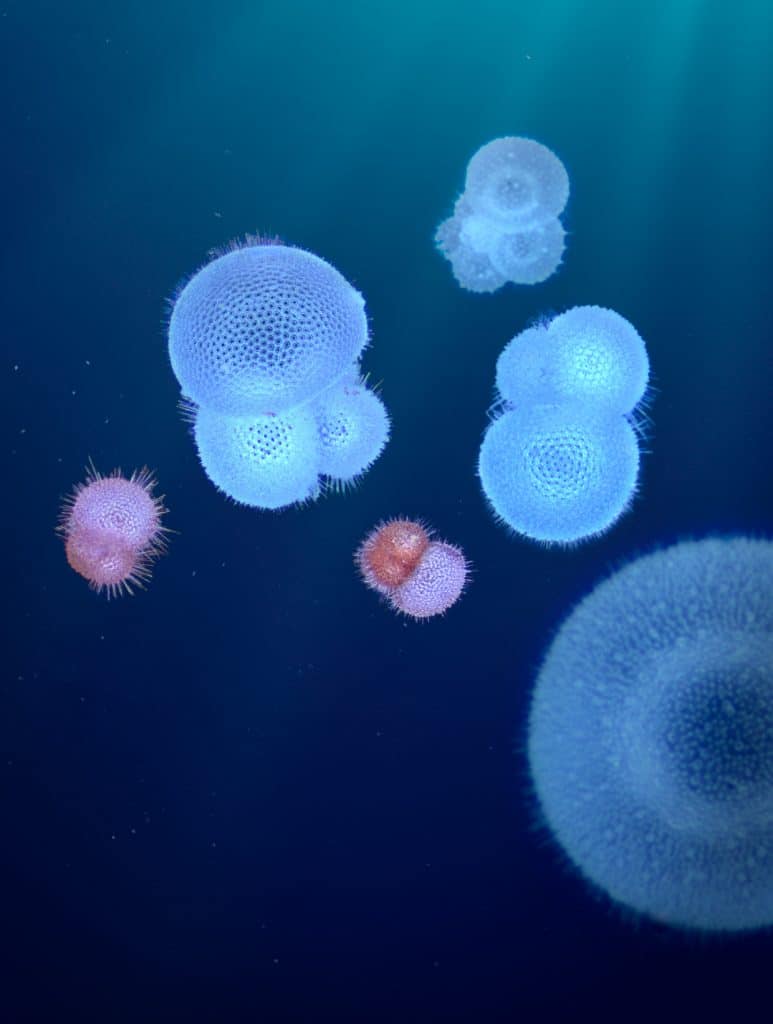A new international study, led by researchers from CNRS Terre & Univers, reveals that planktonic foraminifera, micro-organisms that are essential to the ocean carbon cycle, are in decline despite their migration to cooler waters. This discovery, published in Nature, highlights the urgent need to protect these sentinels of the climate in the face of global warming and ocean acidification.
Climate change is exerting increasing pressure on marine ecosystems, particularly affecting planktonic foraminifera, micro-organisms that are essential to the ocean carbon cycle.
A recent study, conducted by the CEREGE research centre in Aix-en-Provence (Aix-Marseille University, CNRS, IRD & INRAE), the Fondation pour la Recherche sur la Biodiversité (FRB) at the Centre de Synthèse et d'Analyse sur la Biodiversité (CESAB) in Montpellier, and the Max Planck Institute of Chemistry in Mainz (Germany), reveals that foraminiferal populations are declining at an unprecedented rate as a result of ocean warming and acidification. High levels of CO₂, responsible for the acidification of the waters, are complicating the formation of the shells of these single-celled organisms, threatening their survival. These climate sentinels migrate to cooler waters in an attempt to adapt, but the environmental changes are happening faster than they can adjust.
What are planktonic foraminifera?
Planktonic foraminifera are microscopic unicellular organisms found in all oceans. They have the ability to form calcium carbonate shells. Once fossilised, these well-preserved remains in marine sediments provide a valuable natural archive recording past environmental changes, enabling scientists to trace how these organisms have adapted to and survived varied climatic conditions over tens of millions of years.
The international team, made up of French, German, Dutch, Japanese and Spanish scientists, analysed almost 200,000 samples of foraminifera collected since 1910 in order to study their response to climate change. The study, recently published in the journal Natureshows that these species are migrating towards the poles, in search of cooler waters, at a rate of up to 10 kilometres per year. By examining vertical profiles, the researchers also found that some species are moving deeper into the ocean to escape warmer surface temperatures. Despite these movements, foraminifera populations have declined by 25 % over the last 80 years. Tropical species are the hardest hit, as the intense warming in these regions is probably disrupting their reproductive cycles, leading to a major decline.
Researchers estimate that by the end of the 21st centurye century, many species of planktonic foraminifera could face unprecedented environmental conditions, potentially exceeding their survival thresholds. This could lead to further extinctions in tropical regions, with consequent repercussions for marine ecosystems and carbon storage. The increase in CO₂ levels in the ocean limits the formation of calcium carbonate, an essential component in the construction of foraminifera shells. The reduced production of planktonic foraminifera shells could therefore reduce the amount of carbon trapped on the seabed. Nevertheless, some species could migrate to the polar regions in search of cooler waters that are favourable to their development.
Key questions remain as to how these species will adapt to extreme acidification and rapidly changing environments. This highlights the need for further research into their adaptation strategies and conservation efforts to protect marine ecosystems in the face of ongoing climate change.
This research was funded by the Fondation pour la Recherche sur la Biodiversité (FRB) within the Centre de Synthèse et d'Analyse sur la Biodiversité (CESAB) and co-financed by the Max Planck Institute for Chemistry (MPIC) in Mainz, Germany, the CNRS-INSU LEFE programme and the Aix-Marseille University Initiative of Excellence - A*MIDEX.
Contacts
AMU post-doctoral fellow at the Centre de Recherche et d'Enseignement de Géosciences de l'Environnement (CEREGE - OSU Pythéas)

For more information
Chaabane, S., de Garidel-Thoron, T., Meilland, J. et al, Migrating is not enough for modern planktonic Foraminifera in a changing ocean. Nature (2024) DOI
Climate change: a proven threat to calcifying plankton, CNRS INSU, 22 Nov. 2024
Plankton are the backbone of the ocean - and may struggle with what's coming, The Washington Post, 13 Nov. 2024


